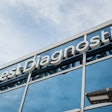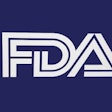Dear LabPulse.com member,
Financial results this past week suggest that some IVD firms are adjusting well to lower demand for COVID-19 laboratory testing.
In its first reporting period following the combination of Quidel with Ortho Clinical Diagnostics, QuidelOrtho reported a surge in year-over-year second quarter revenue growth last Thursday. For Q2, the company saw strength in all business units when it excluded COVID-19 revenue, including double-digit growth in Point-of-Care and Molecular Diagnostics and high-single-digit combined growth in Labs and Transfusion Medicine.
The firm's CFO Joseph Busky said he believes that when the pandemic "gets into an endemic stage, as we move into next year," its COVID-related revenues will be in the $150 million to $200 million annual range.
Last week, DiaSorin reported a 33% increase in revenues for the first half of this year, driven in part by sales of products from Luminex, which it acquired last July. Though overall revenues were partly offset by a decline in COVID-related sales, DiaSorin's revenue growth was also driven by sales of its immunodiagnostic and molecular diagnostic products.
Meanwhile, OraSure Technologies this week reported a year-over-year increase of 39% in its second quarter revenues. Revealingly, the firm booked Q2 revenues of $43.1 million for InteliSwab, an increase of 95% compared to Q1, reflecting high demand for its COVID-19 rapid antigen test.
By comparison, total product and service revenues for its Molecular Solutions business unit dropped 1% sequentially and 48% year-over-year, driven by a drop in COVID-19 laboratory testing and the associated decrease in demand for its COVID-19 molecular collection kits.
Meanwhile, on Friday, Quest Diagnostics said demand for its COVID-19 molecular testing in July was consistent with demand in June, with about one in four tests in July being positive for COVID-19.
The company further announced plans to launch the Centers for Disease Control and Prevention's orthopoxvirus test during the first half of August, supplementing testing with its monkeypox test.
On Sunday, the American Clinical Laboratory Association (ACLA) announced that five of its clinical laboratory members have the capacity to test up to 70,000 patient samples per week for monkeypox infection. The five member laboratories -- Aegis Sciences, Labcorp, Mayo Clinic Laboratories, Quest Diagnostics, and Sonic Healthcare USA -- are each working with the Centers for Disease Control and Prevention (CDC), as well as offering the CDC's orthopoxvirus assay.
Though testing demand for monkeypox continues to increase, capacity in the U.S. is above current demand, ACLA said.
Molecular diagnostics continues to be one of the fastest growing segments of the diagnostics industry; in particular, rapid advances in genetic testing technology are contributing to precision medicine. However, the American College of Physicians (ACP) cautions that the application of genetic tests should be based on the best interests of the patient, scientific evidence, and ethical standards.
Meanwhile, the College of American Pathologists (CAP) has issued a guideline that promises to help pathologists and oncologists better evaluate patients with certain cancers that may be addressed with immunotherapies known as immune checkpoint inhibitors.
Researchers continue to seek noninvasive ways to collect samples for testing; a new nanoscale method being developed by an international team of researchers uses tears and exosomes for fast and accurate disease diagnosis.
On Wednesday, President Joe Biden announced his intent to appoint Dr. Monica Bertagnolli as the first female director of the National Cancer Institute (NCI). Dr. Bertagnolli joins NCI at a time of renewed attention to the Cancer Moonshot, reignited in February with the new goal of reducing the cancer death rate by at least 50% in the U.S. over the next 25 years.
Meanwhile, companies such as Foundation Medicine and Guardant Health announced results of key studies this past week to advance the detection and treatment of lung cancer.



















